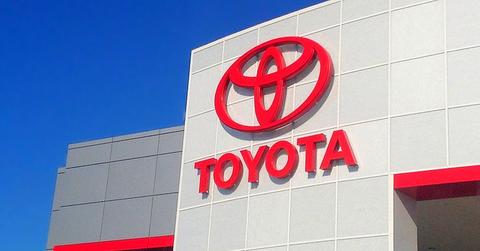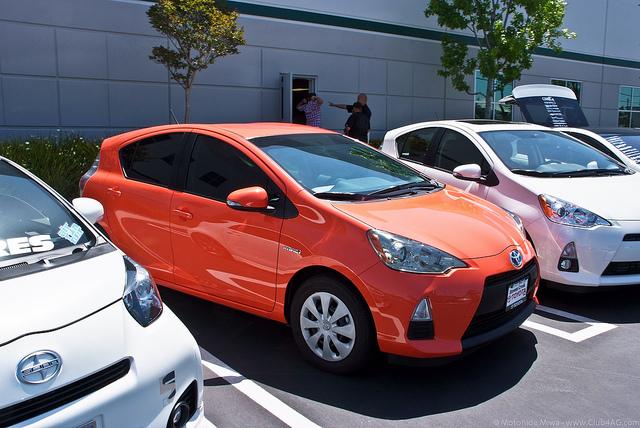Toyota's Ultrafast Charging Solid-State Batteries Could Be Game Changer For EVs
Toyota is still working on hydrogen fuel cells for their vehicles, but they believe that solid state batteries will be mass marketed in vehicles by 2022. This new kind of battery would provide more range, higher efficiency, and safer driving.
Updated Nov. 19 2020, 9:41 p.m. ET
Electric vehicles have just cracked into the automobile market, and there’s already a solution for better batteries on the way. Toyota is in the process of manufacturing solid state batteries for their cars and hope to mass produce them by the early 2020’s. This would replace the lithium-ion battery commonly found in existing EVs and could be a significant game changer in increasing range and stability.
At the moment, li-ion batteries are the best way to fuel electric cars, but there’s a significant amount of disadvantages. The liquid electrolytes inside of them have safety hazards and cars are equipped with cooling systems to keep them from overheating. That decreases range, adds weight, and heightens the cost of EVs. What makes a solid state battery are solid electrolytes instead of the liquid form.
Toyota is currently working on this new form of battery that would very likely improve electric vehicles in many ways. Charging the battery up would be more efficient and it would last longer than traditional li-ion batteries. For example, mobile devices that use the latter battery continually holds less power after being used and charged up repeatedly. With more efficiency and no need for the cooling system, that could increase range.
While improving the charging infrastructure would go a long way in improving the electric vehicle’s biggest issue, being able to drive farther on a single charge would be the optimal solution. Having a solid state battery would help both options with the battery being able to charge faster than traditional li-ion. Solid state batteries have long been known for being a perfect match with EVs, but the costs have always been too steep.
Hyundai has also reportedly been working on solid state batteries for their vehicles back in April. According to the Korea Herald, mass production of these batteries would begin “around or after 2025.” Toyota hopes to accomplish that in less time with a spokesperson telling Chunichi Shimbun that they “intend to commercialize solid state batteries by the early 2020s,” and a target year of 2022 has been defined.
Both Toyota and Hyundai are still committed to hydrogen fuel cells, but they will need to make all-electric vehicles to satisfy a new Chinese mandate likely going into effect soon. Eight percent of new vehicle sales would need to meet zero-emission criteria. These fully electric vehicles would obviously not have the new solid state batteries, but it could be a major reason why Toyota is pursuing the technology aggressively.
We’ll see how they fare compared to others that are promising better range, but haven’t provided results yet. Israeli startup StoreDot and Henrik Fisker’s EMotion both claim that their batteries provide anywhere from 300-400 miles of range and can be recharged in less than 10 minutes. Fisker has brought up enhanced li-ion batteries and graphene technology to improve charging and driving times.

